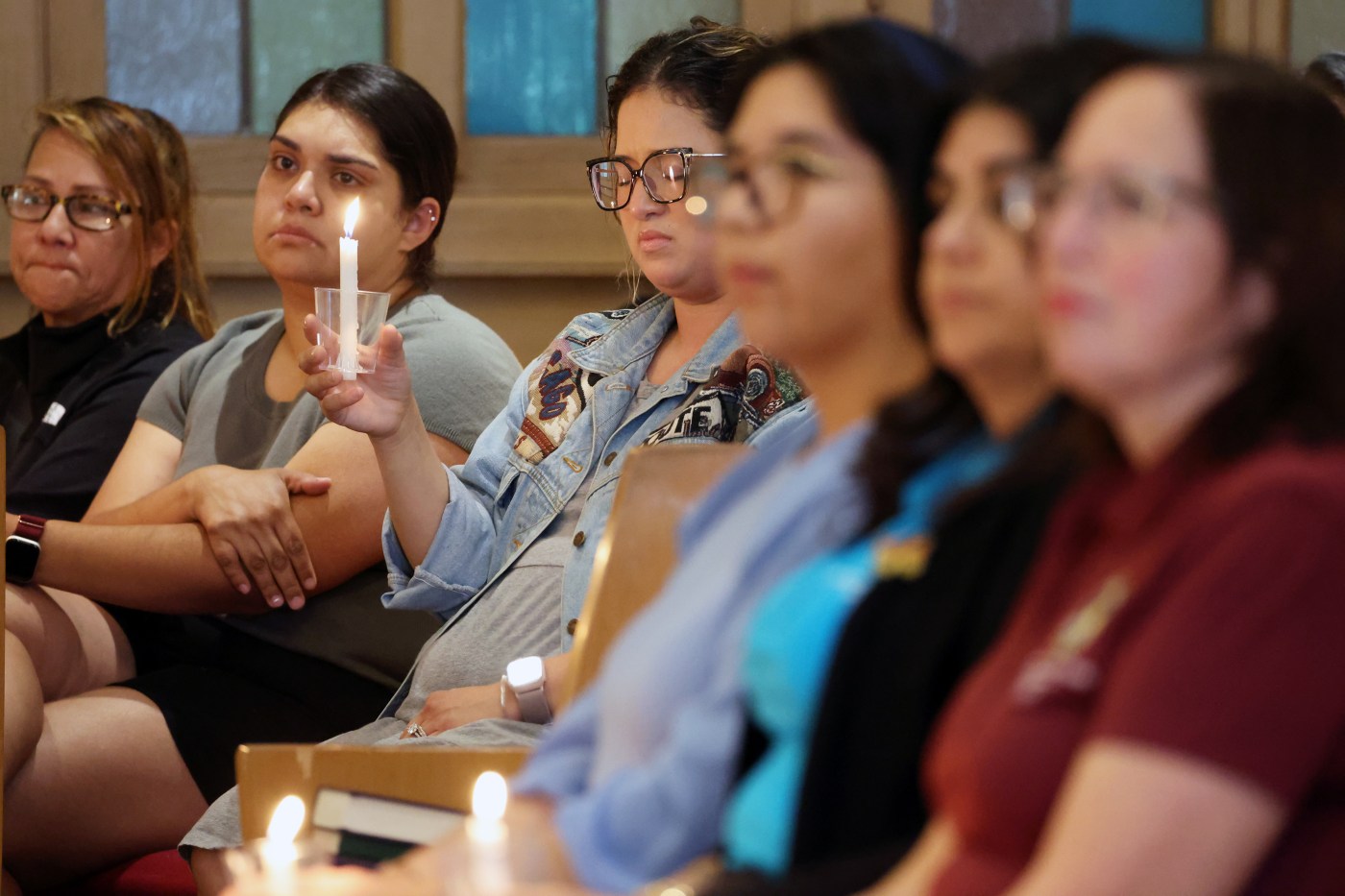URGENT UPDATE: A shocking incident in Elgin, Illinois, has ignited fierce backlash from local immigration advocates after a U.S. citizen was briefly detained during a federal raid. The operation, conducted by the Department of Homeland Security (DHS) on September 16, 2025, included a video posted by DHS Secretary Kristi Noem showing the handcuffed citizen, Joe Botello, which many are calling a gross misuse of power.
Witnesses describe a chaotic scene as armed agents forcibly entered a home on Chippewa Drive, destroying doors and causing panic among residents. Ismael Cordová-Clough, an Elgin immigration activist, expressed his outrage, stating, “It’s disgusting that they utilized our community for their theatrics.” He emphasized that the video publicized by the federal government unfairly portrayed innocent individuals, including Botello, who was questioned and released after proving his citizenship.
Botello, a 37-year-old U.S. citizen born in Texas, recounted the traumatic experience of being handcuffed and questioned by armed agents. “I was a bit in shock,” he said, highlighting the emotional toll of the incident. Following the raid, Noem shared the video on social media, asserting that the operation targeted violent offenders, but failed to clarify Botello’s citizenship status.
The raid was part of “Operation Midway Blitz,” a heightened immigration enforcement campaign announced by Noem just days prior. Reports indicate that as of Monday, 250 arrests had been made across Illinois, with five undocumented immigrants apprehended during the Elgin operation. DHS confirmed that these individuals were arrested, but their connection to the video remains contentious.
Critics argue that Noem’s message misrepresents the situation, placing guilt on those recorded without proper context. Cordová-Clough stated, “They’re putting guilt at the forefront to excuse their behavior,” a sentiment echoed by fellow advocates who view the video as propaganda. Delani Hernandez, another local activist, described the individuals in the video as “collateral damage,” emphasizing that not everyone detained was guilty of wrongdoing.
DHS officials defended their actions, stating that the brief detention of U.S. citizens is standard protocol during operations. However, federal immigration attorney Steven Greenberg criticized the portrayal of Botello, indicating that the legal protections for government officials may limit recourse for those wrongfully depicted.
The fallout from this incident raises significant concerns about the treatment of individuals during immigration enforcement operations and the ethical implications of publicizing such videos. As the situation develops, advocates are calling for accountability and transparency from the federal government.
What happens next is crucial—watch for potential legal actions and further community responses as advocates mobilize to address these alarming practices. The emotional impact of these events underscores the urgent need for a more humane approach to immigration enforcement in the U.S.
